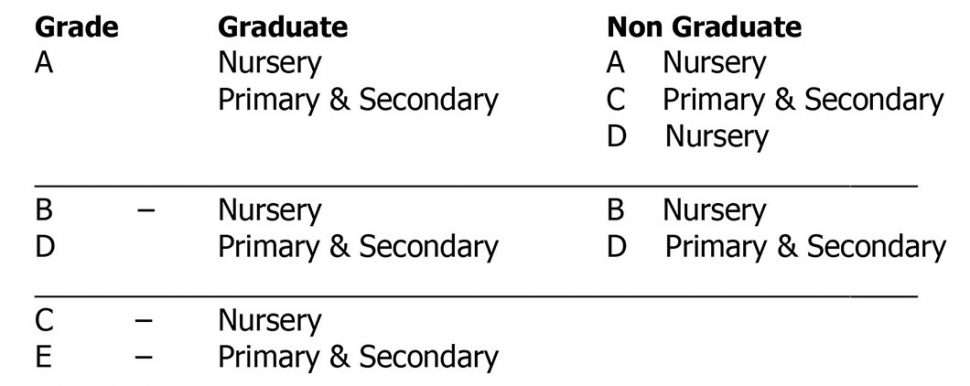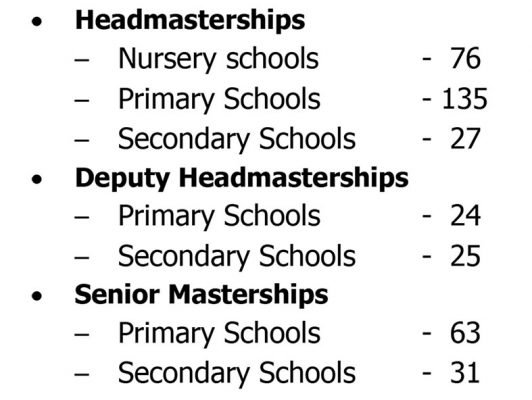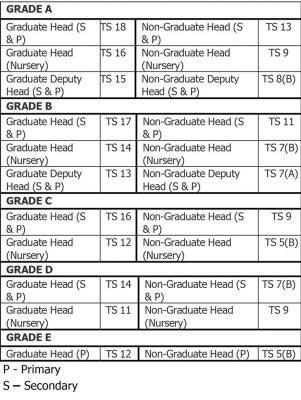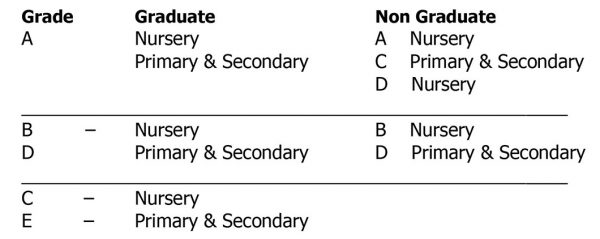Dear Editor,
It is uncertain whether its timing is intended to be an orchestrated intervention aimed at becalming the smouldering anxieties of the undermentioned grades of teachers; but the Teaching Service Commission released on August 28, 2018 a Preliminary Appointment List of Promotions, effective October 01, 2018.
It would be interesting to learn of the implications there would be for these promotees, if at all they have gone on strike. The appointments include:
There are also 224 appointees as Head of Department over a range of eleven subjects.
This analysis, however, concentrates on the elevation to the various Headmasterships and the respective pay increases.
One is uncertain as to whether this promise of the immediate offers any substantive joy to the promotees, for it only confirms that they all remain embedded in the most constipated compensation structure existing in the Public Sector of Guyana, and for that matter, in counterpart agencies of CARICOM territories.
Opportunity is taken here to invite focused attention to a salary structure where, so far as Heads (and Deputy Heads) are concerned, takes exclusive account of academic qualifications, as against performance – a contradiction which does not appear to be as broadly observed in most of the Guyana Public Service, for example.
Whatever the justification may be, examination would show that there is a set of unreasonably wide differentials in value between Graduates and Non-Graduate incumbents undertaking the same set of duties and responsibilities in the same Grades of Schools.
The fundamental contradiction, continually ignored by all the players, is that in the final analysis, it is meritorious performance on which upward mobility in organisations is normally based (all things being equal).
If therefore the organisation as a policy is prepared to utilise a choice of criteria in effecting promotion to the same job, then it is the value of that job which should dictate the salary to be applied in every case.
What we have in the case of the Teaching Service Commission is an anachronism that reaches back some fifty years or more, and unfortunately embedded in the DNA of both the contending parties; as well, more latterly, in related School Boards (MOE) who, incidentally, have issued their own preliminary list of similar appointments.
It seems an opportune time therefore for the defaulting parties to pay heed and commit to correcting this major disincentive, as contained in the following salary structures for Headmasters/Headmistresses, for example.
The following comparable salary scales reveal the tsunamic differentials obtaining for Heads executing the same range of duties and responsibilities.
One hopes that the GTU would take advantage of the forthcoming arbitration exercise to ensure that the glaring breaches as shown above are effectively reconstructed. Just look at the differentials in value of the respective scales for Grade A – Primary and Secondary Heads.
One must ask what are the differences in job responsibilities, and what criteria are used for evaluation? Certainly no similar discrimination obtains in our Public Service at any level.
The other derisible feature of course is the insulting narrowness of the scales when computed in terms of a professional career, as depicted in the Table above. A Schools Welfare Officer in the very Ministry of Education is at the Grade 7 of Public Service Scale of $95,381 – $133,432 – a width of $38,051 or 39.89%.
Careful scrutiny will also identify the following equivalencies in values for certain Headships.
It would seem that in spite of a Commission of Inquiry, Task Force, and de facto Conciliation there is displayed so far, a fundamental absence of competence in the area of compensation management – which is now left to be addressed by an appropriately knowledgeable and neutral arbitration team.
At whatever level, it would be instructive to observe how productive would be the results of the touted ‘de-bunching’ exercise.
Yours faithfully,
E.B. John





